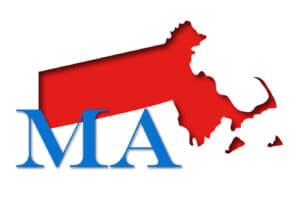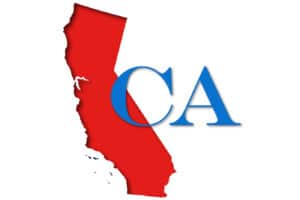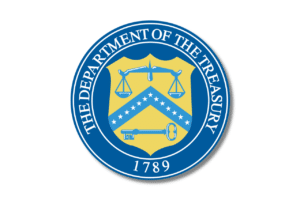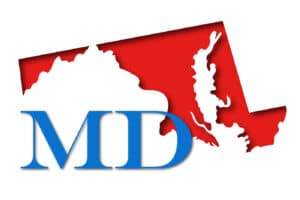Opportunity Zones

Forum on Transformative Development to Focus on HDIP in Opportunity Zones – Feb. 27
MassINC, the Massachusetts Smart Growth Alliance, and LOCUS are hosting a forum on Feb. 27, 2019 focused on stimulating transformative investment in Gateway Cities with the state’s Housing Development Incentive Program (HDIP) and federal Opportunity Zone Funds. The free event will run from 1-2:30 pm ET in the Massachusetts State House – Room 428 (24 […]

Opportunity Zones Hearing Rescheduled – Feb. 14
Love for Opportunity Zones will be in the air this Valentine’s Day at the IRS hearing on its proposed Opportunity Zones regulations. The hearing, which was originally scheduled for Jan. 10 and postponed because of the government shutdown, will be at 10 am ET on Feb. 14 in the IRS Building Auditorium in Washington, DC. To be placed on the building access list to attend the hearing, contact Regina Johnson at (202) 317-6901.

Members of Congress Raise Concerns to Treasury on Opportunity Zones
Seven Senators and nine members of the House of Representatives sent a letter to Treasury Secretary Steven Mnuchin in which they praise and raise concerns about Treasury’s proposed regulations. The signatories urge Sec. Mnuchin to address remaining questions on investments in operating businesses.

Jared Bernstein op-ed: “give OZs a chance, while scrutinizing their progress”
In a Washington Post op-ed, Jared Bernstein, former chief economist to former Vice President Joe Biden and senior fellow at the Center on Budget and Policy Priorities, describes the early developments, including the Zone certification process, market reactions and some proposed investment targets of Opportunity Zones. While Bernstein notes the gentrification risk of Opportunity Zones, he concludes that the selected Zones have both the need and capacity to absorb new investment, development and people without displacing local residents. He calls on Treasury to dictate strong reporting requirements that will accommodate thorough evaluation.

California Governor’s proposed budget summary includes $7.7 billion for housing
Governor Gavin Newsom (D-CA) published his 2019-2020 proposed budget summary. In total, the Budget includes $7.7 billion across multiple departments and programs to address housing and homelessness throughout the state.

OZI submits comments on Treasury’s Opportunity Zones proposed rule, Treasury cancels hearing
The National Association for Opportunity Zone Investment (OZI) submitted its comment letter to Treasury’s proposed rule on Investing in Qualified Opportunity Funds. OZI’s comments seek to establish an informal safe harbor for plain vanilla, prudent and “down the middle of the fairway” transactions.

Maryland Governor Announces Opportunity Zone Expansion
Governor Larry Hogan (R-MD) announced a series of initiatives and legislation to expand the Maryland Opportunity Zone program. A total of $56.5 million would be dedicated to attracting new businesses and development and continuing to invest in Maryland’s workforce.

New White House Opportunity and Revitalization Council
President Trump signed an executive order creating the White House Opportunity and Revitalization Council. The council, led by HUD Secretary Carson, spans 13 federal agencies with the intent of prioritizing opportunity zones in a variety of federal efforts, including grant funding, loan guarantees, infrastructure spending and crime prevention.

Bipartisan Group of Senators Introduces Bill to Expand Opportunity Zones
On November 15, Sens. Richard Burr (R-NC), Dianne Feinstein (D-CA), Lindsay Graham (R-SC), Kamala Harris (D-CA), Bill Nelson (D-FL), Marco Rubio (R-FL), and Thom Tillis (R-NC) introduced the “Hurricanes Florence and Michael and California Wildfire Tax Relief Act” (S. 3648). The bill, in addition to providing tax relief for victims of the natural disasters like an employment credit and tax-favored withdrawals from retirement plans, would designate all of the applicable disaster zones as an Opportunity Zones.

NCSHA Publishes Opportunity Zone Fund Directory
The National Council of State Housing Agencies has published an online “Opportunity Zone Fund Directory,” which is a compilation of Opportunity Zone funding opportunities. This resource provides descriptions and contact information for publicly-announced funds that have been formed for the purpose of attracting investment in Opportunity Zones. NCSHA is tracking only multi-project opportunity funds. NCSHA […]

IRS Issues Opportunity Zone Proposed Regulations
On Friday, October 19 the Internal Revenue Service (IRS) issued several critical documents relating to the Opportunity Zone Incentive. This includes:

CohnReznick Launches Opportunity Zone and NMTC Mapping Tool
CohnReznick has launched an updated interactive mapping tool designed to assist New Markets Tax Credit and Opportunity Zone Investment stakeholders. This mapping tool helps access eligibility using census-based criteria from the 2011-2015 and 2006-2010 American Community Surveys. Either census database may be used to evaluate eligibility through a transition period ending October 31, 2018*. To identify the […]